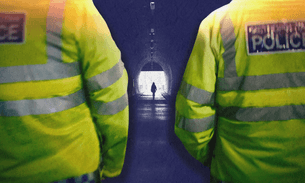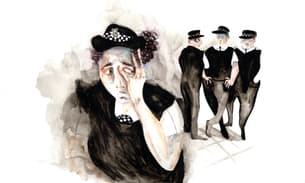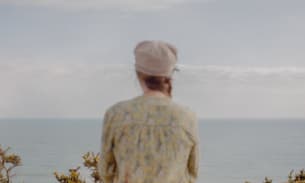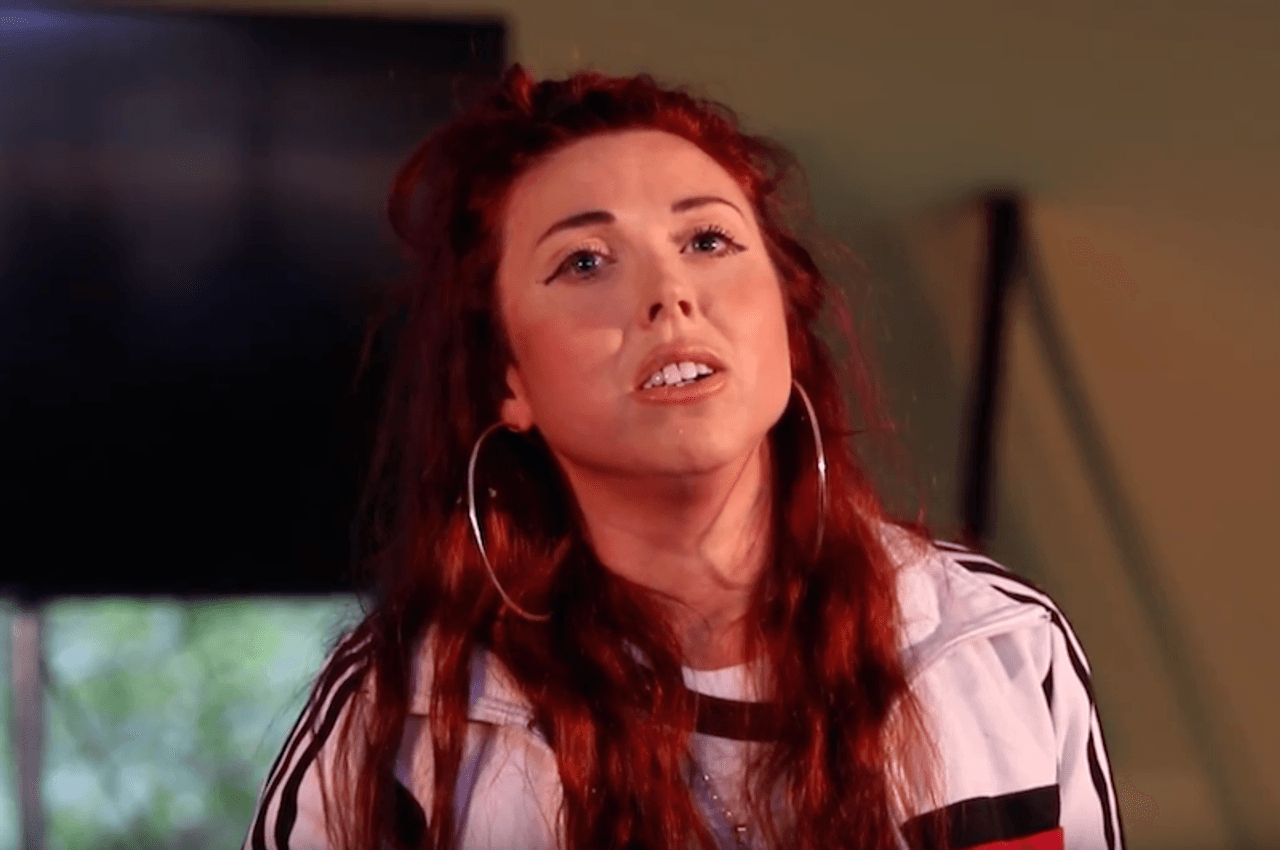
Refuge Woman: live journalism experiment reached new audiences
I held my breath as the lights went down. We were in a beautiful little theatre, housed in a medieval church in Norwich and were about to find out if our live journalism experiment would work.
It was only a year ago that Cash and I met after the roof of a domestic violence shelter came crashing down. She had a story to tell and I had a pen in hand.
Now, Cash was about to take to the stage and tell a semi-autobiographical story inspired by her experiences and I was leading post-show discussions with her and local journalists.
We would go on to tour this in seven cities across the UK. Cash’s one-woman show would open eyes as she told the story of cuts to domestic violence refuges and the media’s portrayal of working class women. The Bureau Local’s experimental journey would not only tell stories in new ways but take them to new audiences too.
But why is a journalistic unit doing dabbling in theatre, you may ask?
At the Bureau Local, our local network brings together journalists and members of the public to report big, hard-hitting stories with local and national importance.
Last year we worked with local journalists and citizens across the country to reveal that funding for refuges in England had been cut by 24% since 2010, and more than 1,000 vulnerable women and children had been turned away from refuges in just six months alone.
Our local network produced more than 50 compelling stories from the data. The story made waves. MPs and police chiefs spoke out about the findings and called for sustainable funding for refuges across the country, our findings were raised in Prime Minister’s Questions and a government consultation was launched.
I spoke to many women who were fleeing domestic violence and quickly saw that their stories were about much more than the violence, yet they weren’t always told that way. I wanted to ensure their voices were at the forefront of their stories. Enter Cash Carraway.
More than a ‘source’
I first met Cash on the steps of Kensington and Chelsea Town Hall. The roof of the refuge she was staying in had just collapsed and she and her young daughter found themselves, yet again, looking for a safe place to stay.
Over the coming months I followed Cash’s journey as she shared her story and contributed to the reporting. We became close and I really cared about her and her daughter. I also saw she had her own story to tell and a powerful voice that could - and should - carry her story alone.
Cash contributed to our main news report but also wrote a raw and honest account of her experience that was published at the same time.
But there was more. Cash told us she had plans to develop a semi-autobiographical, one-woman stage show about life in a refuge. I knew it would be powerful and would touch the lives of anyone who saw it.
That’s when I had the idea. Why not support the development of the show and take it on tour?
We had worked on this story with local reporters, refuges and charity workers across the country. Bringing Cash and all of them together in a collaborative event could bring the reality of funding cuts to life by giving audiences a powerful first-hand account but also important information on the subject in their local areas.
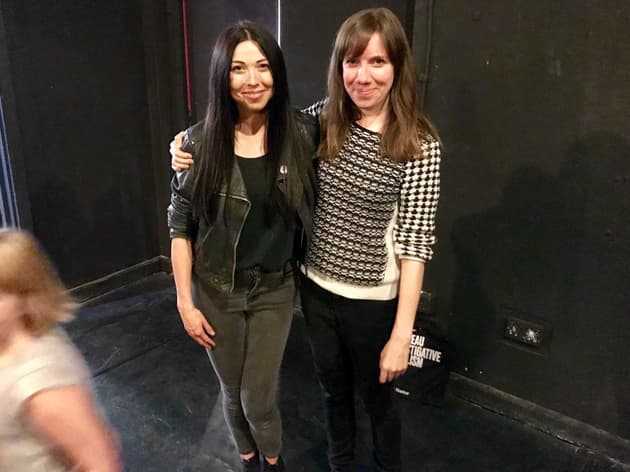 Cash Carraway and Maeve McClenaghan after the final Refuge Woman show in London
TBIJ
Cash Carraway and Maeve McClenaghan after the final Refuge Woman show in London
TBIJ
To the stage
After months of Cash’s hard work writing and finessing the script, and our work booking theatres, designing programmes, learning how to work lighting boards, (my CV has several unusual new additions now!), we were ready to take the show on the road.
Our first stop was Norwich. As the audience started to gather outside the theatre door Cash and I looked at each other, full of nerves. We had no idea how this was going to go down.
We needn't have worried. Within minutes the audience were bellowing deep-belly laughs at Cash’s wicked sense of humour. Later, in a particularly moving scene you could hear a pin drop and there were more than a few tears. At the end, Cash was given a standing ovation.
The aftershow talk was just as engaging. We heard from Leeway, a local refuge about their work in the community and reporter Tom Bristow told us how he had found that reports of domestic violence had risen 70% across Norfolk (between 2013-2017), while funding for refuges had been cut by 20%.
The audience got involved too, we heard passionate input from local residents and domestic violence survivors and some refuge managers that had been working locally for over 20 years. One woman brought her GP, the single person - she said - who had saved her life at the time.
The show had amazing feedback. “Such powerful work,” one woman tweeted. “It was pure, real, raw & honest. Cash is a voice to be listened to and a voice for those that can’t be heard,” wrote someone else.
Later, a man in the audience, a former perpetrator of domestic violence himself, wrote to us and said: “Cash, thank you for teaching me more than prison taught me.”
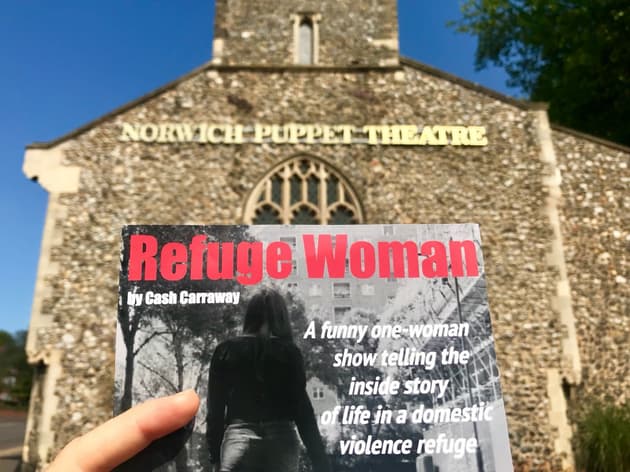 Refuge Woman's first venue, Norwich Puppet Theatre
TBIJ
Refuge Woman's first venue, Norwich Puppet Theatre
TBIJ
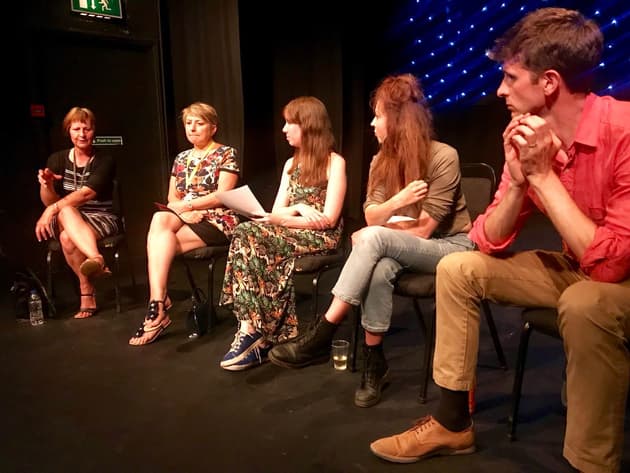 Cash and Maeve hold a post-show discussion with local reporters and refuge managers
TBIJ
Cash and Maeve hold a post-show discussion with local reporters and refuge managers
TBIJ
Four nights later we were up in Lancaster in the incredibly welcoming Gregson Arts and Community Centre. Each week Cash and I found ourselves on another train, staying in another Travelodge, as we toured from city to city: Birmingham, then Bristol, then Leeds.
One night, in Leeds, was particularly emotional. On the way up to the venue we read how the government had just backed down over plans to change the way refuges were funded, a move that could have forced many to close. The atmosphere in the aftershow talk was electric, people were really angry at the fragility of the refuge funding system.
But it wasn’t just members of the public we wanted to get the message to. This was something journalists needed to hear too. So we took the show to Byline Festival, an annual gathering of music, talks and comedy all centred around an exploration of journalism.
Arriving at the festival site, Cash and I wondered aloud about how the show would go down. The performance provides a searing critique of the way some journalism can belittle and patronise working class women. Every time I see the show I am reminded of the huge responsibility I have when reporting people’s stories.
In the end, we had a great response. The tent quickly filled, people laughed and whooped. Later, one attendee wrote to us to say it was the best thing they’d seen all festival.
We learnt so much in such a short amount of time. Along the way, local journalists were connected to people with stories to tell, who, in turn were reminded of the power and importance of local journalism in holding power to account.
The work informed people in new ways, sparked debate and reached new audiences. A survivor of domestic violence told her story in her own words. But most importantly, our journalism at the Bureau Local changed for the better.
The work made the shortlist for Best Innovation at the British Journalism Awards, 2018. The show was made possible thanks to a grant from the Bosch Foundation and the University of Oregon’s Agora Common Fund scheme: a funding pot designed to help journalists take their stories to communities that need to hear them. There is no doubt that is what this project did.
Note: This piece has been edited to better reflect the content of Cash Carraway's performance
Header image: Cash Carraway via TBIJ
Become part of the Bureau Local network. Investigate issues locally and collaborate with others around the UK to get national reach.
Join here
